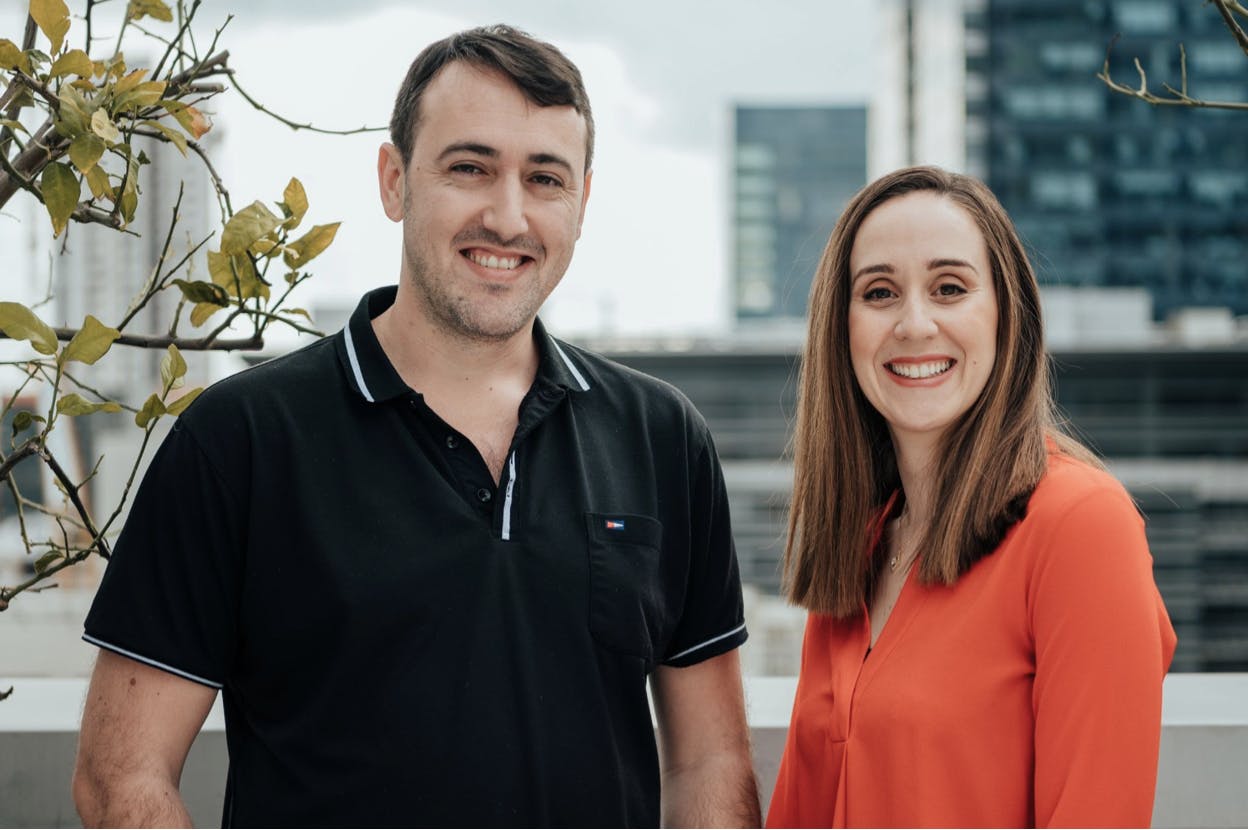Built with MongoDB: Leadgence

Leetal Gruper and Sergey Bahchissaraitsev worked together previously, but in 2019, they sat down to brainstorm a new direction. Leadgence was born out of their passion for data and business expertise and quickly grew, with Leetal as CEO and Sergey as CTO. With customers ranging from startups to Fortune 500 companies, they tripled their client base three times over in the last quarter.
“The Leadgence platform delivers banks, financial services, fintech and insurance companies smart actionable data about SMBs,” said David Citron, Partner at Global Founders Capital, which invested in Leadgence and partners with MongoDB for Startups to support their portfolio companies.
“With Leadgence, customers see through the cluttered SMB landscape using industry-specific tags and change and event-based triggers to tailor their outreach knowing who to call, when, and most importantly why they are calling! SMBs are in turn getting offers for services they need, when they need them, saving them time and money that is always scarce when growing a small or midsize business."
In this edition of #BuiltWithMongoDB, we chat with Sergey about the evolution of Leadgence, his favorite MongoDB features, and constantly learning new lessons as a company co-founder.
MongoDB: In your own words, what does Leadgence do, and how have your products evolved since you launched the company?
Sergey: Leadgence grows revenue for enterprise companies that target small and mid-size businesses.
We started out offering pure smart data to support sales and marketing for financial services. Initially, there was no user-facing platform. We had paying customers from day one which were getting smart actionable data. Then we launched our first application DataSeeker in December 2020 delivering event and change-based triggered actionable data intelligence. Somewhere in-between, we mapped the company’s future road map to include applications offering services to support the different needs of each of marketing, sales, growth and risk-assessment teams.
MongoDB is probably going to back all of our future released applications.
MongoDB: How did you decide to build with MongoDB?
Sergey: It was pretty straightforward. First of all, MongoDB is the go-to database when you're talking about the back end for APIs. I was also already a bit familiar with it from working on a previous product. I guess the key point is that MongoDB Atlas makes things easy, so we started using the infrastructure as a code approach, and spinned it up with Terraform. Atlas was the key feature that drew us to MongoDB. Its document-native approach makes sense with the Node.js that we use.
MongoDB: What has your experience been scaling with MongoDB?
Sergey: We started pretty small, so at first we were just running trials, but we eventually had millions of documents in the database. As we’ve scaled and started building our applications, we also use it like an analytics database. We basically run online inquiries on it, where our users can explore our data and get instant results.
The MongoDB for Startups program also has been really helpful. They’ve supported us a lot and have been a real partner in our growth. The consulting sessions they offered helped us finalize our analytic database approach.
MongoDB: What is your favorite technical article or podcast?
Sergey: Startups for the Rest of Us podcast!
MongoDB: What are you currently learning?
Sergey: I keep evolving in the entrepreneurial side of things. From a technical side, we keep facing challenges and solving them. Sometimes I’m specifically learning about new things from a data science, machine learning, or data processing perspective. Other times I’m learning about scaling the company and bringing people on board. I guess I’m going to keep learning about these things for a while!
One big lesson I’ve learned is that when working on a problem, you should try to solve it in the simplest way possible. Complex solutions usually don’t work out in the end. So, if you solve something in a very simple way, it usually means that you understand what you’ve solved. You can make the greatest impact this way.
MongoDB: How do you upskill and continue educating yourself?
Sergey: I try to communicate with other professionals in entrepreneurship and technical spaces. Networking with individuals pursuing similar work helps me share perspectives and advice. It’s helpful to keep up these connections to understand what’s happening in the market, and what should be done or not done. Hearing others’ opinions about the market helps me understand the kind of direction Leadgence should be going, and what we need to pursue more deeply and analyze further.
MongoDB: What’s been the most challenging thing about building Leadgence?
Sergey: Building a business is in two words not-simple. We at Leadgence work with cutting-edge technology that is evolving rapidly, requiring us to always be on top of the latest developments. Add to that on-boarding new customers and the constant addition of new features and data requests, well I think you get the picture.
Interested in learning more about MongoDB for Startups? Learn more about us here.